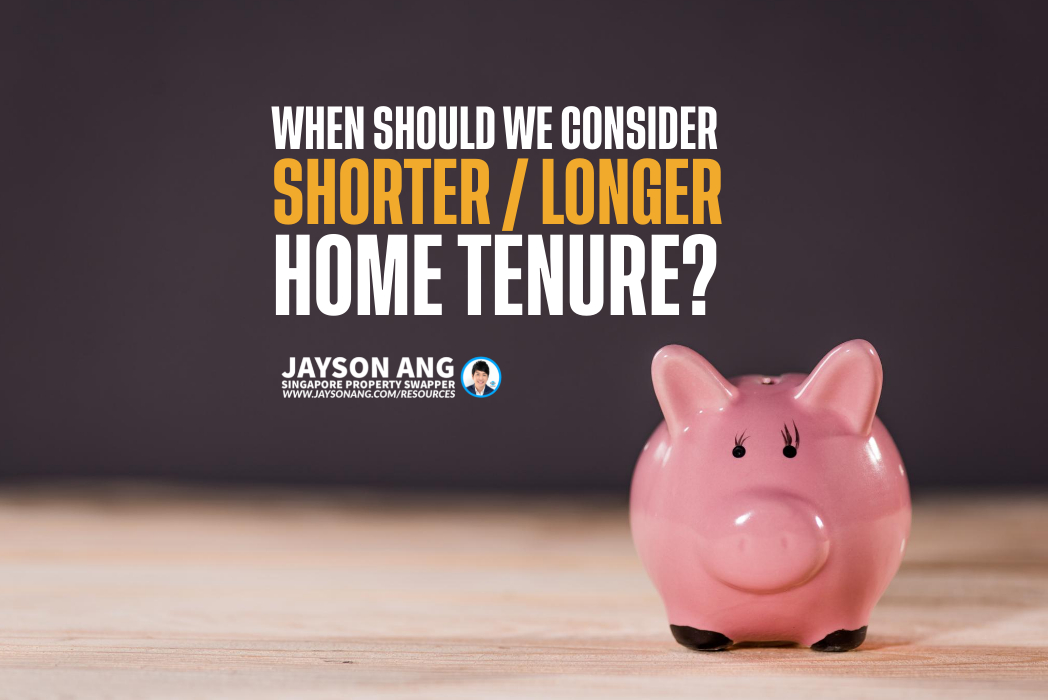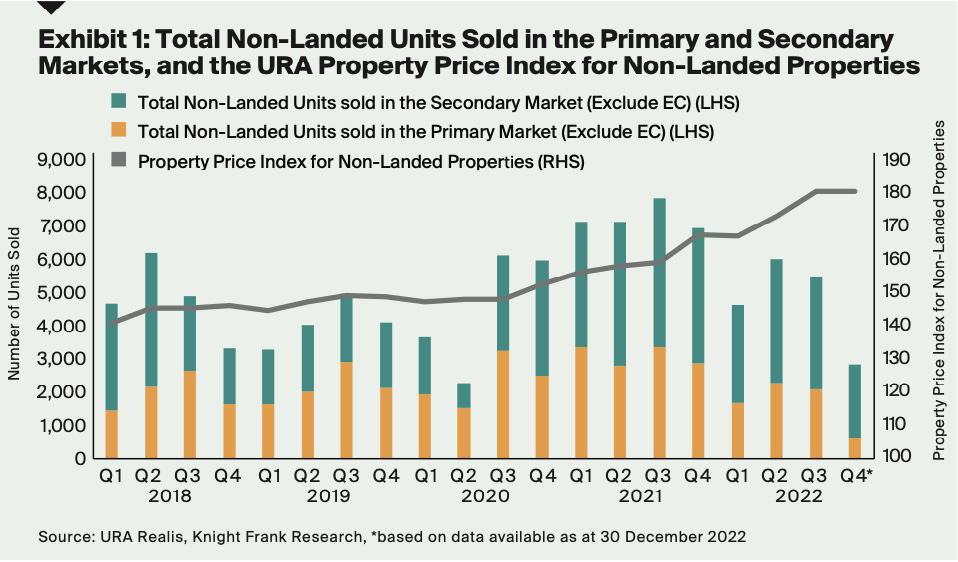TLDR
Understanding the benefits of long-term home loans is crucial for financially conservative individuals in Singapore. Opting for a longer loan tenure can provide financial flexibility and stability, especially during unforeseen circumstances like pay cuts or emergencies. While shorter loan tenures may seem appealing, extending the loan period allows for better cash flow management and potential investment opportunities that are more inflation-proof. On the other hand, shorter loan tenures may be more suitable for meeting financial requirements, accumulating savings, pursuing real estate investments for profit, or simplifying future financial situations. It’s essential to weigh the pros and cons based on individual circumstances and long-term goals.
For the financially conservative Singaporean, a lengthy home loan tenure can be daunting. Borrowing money can cause immense stress, and the feeling that you are missing out on something due to the long tenure.
However, what if we told you that taking a long-term loan can be beneficial?
While it may seem that banks are out to get you, in reality, taking the longest home loan tenure available is often recommended for home buyers.
In most cases, a short loan tenure does not make sense from a financial standpoint.
Let’s Begin By Exploring Why The Standard Wisdom Is To Extend The Length Of Your Mortgage
Let’s take a step back and explore why we typically don’t opt for a shorter loan tenure – when you decrease the maximum loan period, the amount of your monthly repayments increases significantly.
To demonstrate, let’s say we take a S$360,000 HDB housing loan for 25 years (the longest possible term) with an interest rate of 2.6% annually.
That would work out to approximately S$1,600 monthly.
Reducing the loan tenure by only 20 years can push your monthly payments to S$1,925 – and if you decrease it to 15 years, your bill goes up to a stunning S$2,400+!
While it may not seem like a huge difference, when it comes to your daily life, the cash flow is what matters most. So if you ever find yourself in a situation where you need to take a pay cut (whether it’s temporary or not), having a higher monthly payment could increase your chances of being unable to pay the loan.
It’s all too easy to focus on the length of time needed to pay off your mortgage, but if you don’t have the money to make your next payment – S$1,925 in this case – then that becomes a much more pressing concern.
Refinancing isn’t always an option, so you need to think about the bigger picture too.
Are you in a financial position to handle an emergency, such as retrenchment, if you’ve paid off your flat by age 55 but don’t have any savings? Will you be able to unlock the cash value of your flat if you need to?
Taking a longer loan tenure, even if you have to pay a higher interest, is an attractive proposition as the interest rate remains the same, regardless of inflation. Rather than rush home loan repayment, you could use your extra cash flow to invest in products that are more inflation-proof.
Once You Grasp The Concept Above, Think About These Reasons In Favor Of A Shorter Loan Tenure
- Meeting the TDSR/MSR requirements is a breeze, even on a shorter loan term
- Even when paying more every month, you still possess the capability to accumulate considerable savings
- If you’re not an owner-occupier and have long-term profit in sight
- You have meet all reasons above and have ambitious plans for future real estate investments
Reason #1: Meeting The TDSR/MSR Requirements Is A Breeze, Even On A Shorter Loan Term
If your monthly loan repayment and other debts exceed 55% of your income for a bank loan or 30% for HDB or EC purchases, you might need to adjust your financial plans.
Increasing the downpayment or buying a less expensive house may be necessary if you want a shorter loan tenure and the resulting higher monthly repayments.
Reason #2: Even When Paying More Every Month, You Still Possess The Capability To Accumulate Considerable Savings
As a homeowner, it’s important to save an emergency fund that can cover at least six months of mortgage payments. This will provide a cushion of security in case anything goes wrong, giving you the time to find an alternate income, a tenant, or sell the house without taking a heavy financial loss.
Consider storing the fund in a savings account or in your CPF Ordinary Account – you can set aside up to S$20,000 in your CPF when purchasing a home – instead of locking it away in a bond or endowment.
If you don’t have any savings, it is best to seek advice from a financial expert before opting for a loan with short tenure; they may look at you skeptically, but it is important to ask anyway.
Steer clear of loans with higher repayments as this can lead to more stress and debt.
Reason #3: If You’re Not An Owner-Occupier And Have Long-Term Profit In Sight
Investing in a short-term loan may be more beneficial for investors than owner-occupiers, due to the potential for better rental yields and gains in the long-term.
Moreover, with mortgage interest rates at an all-time low for the past decade, investors may be able to reap even more savings by paying off their loans before rates start to rise – historically, the interest rate for home loans in Singapore has been close to 4%.
Since 2008, interest rates have been significantly lower than the historical rate, and the onset of Covid-19 has resulted in them dropping to record lows.
This makes properties much more expensive than expected, and if it’s an investment property being rented out, you may need to sell it quickly if the need for cash arises.
But for a genuine owner-occupier, whose property is their family home, this could be a much tougher situation, as where would they go after selling it off?
Reason #4: You Have Meet All Reasons Above And Have Ambitious Plans For Future Real Estate Investments
If you’re swimming in cash, bring in hefty salaries, and your buddies dub you a master property investor, it’s wise to make your future financial situation simpler by opting for short loan tenures for your real estate.
Taking out a loan for 15 years, for instance, ensures that your loan debt is paid off by the 15th year, allowing you to take advantage of the maximum 75% loan for your next residential property (assuming the loan-to-value ratio regulations remain unchanged), without the strain and extra costs of early repayment.
If you own five or more properties, whether residential or otherwise, you may want to consider a longer loan tenure as this could limit the leverage you can get for your investments when you’re looking to expand your portfolio.
Too many mortgages can be difficult to manage, especially when it comes to refinancing.
Although usually early redemption is the most cost-effective option, it’s best to speak with a mortgage broker or financial adviser to ensure you have the right plan in place.
Should You Buy, Sell or Wait?
If you’re reading this, you must be trying to figure out the best course of action right now: is it the right time to buy or sell?
It’s difficult to give an exact answer since everyone’s situation is unique and what works for one person may not necessarily work for you.
I can bring you a wealth of on-the-ground experience and a data-driven approach to provide clarity and direction. From beginners to experienced investors, our top-down, objective approach will help you on your real estate journey.
I can help you by:
- Offering Strategic Real Estate Advice – I can help create a comprehensive plan to guide you through your property journey.
- Connecting Your Home with the Perfect Buyers – Through stunning visuals, an effective communication strategy, and an in-depth knowledge of the market, we’ll ensure your home is presented in the best possible way to fulfill your goals.
You May Also Like …



















































































